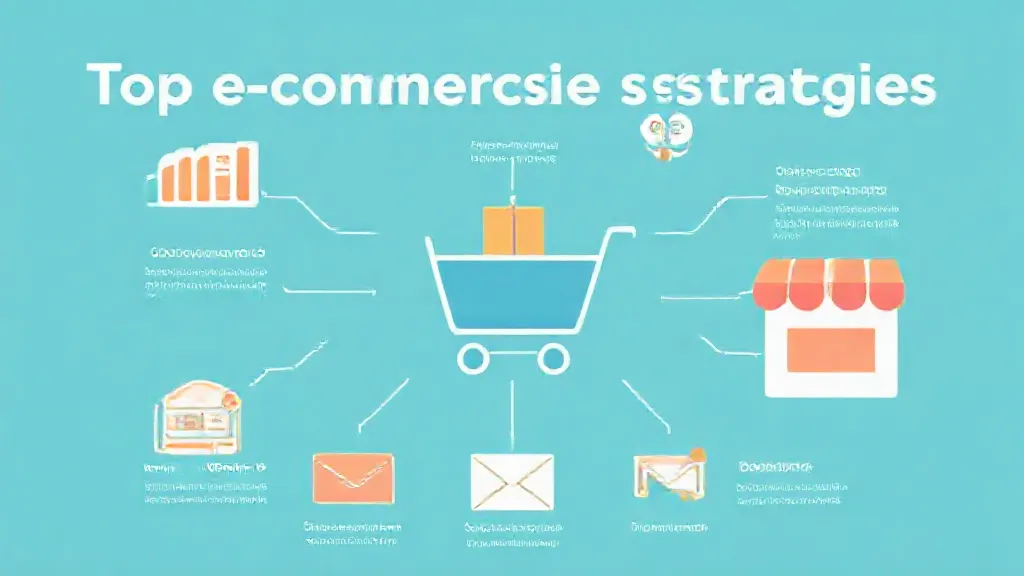In the rapidly evolving world of e-commerce, businesses must adapt their sales strategies to keep pace with changing consumer behaviors and technological advancements. Understanding the top sales strategies for e-commerce is crucial for any online retailer looking to maximize their sales potential and enhance customer satisfaction. This article delves into the most effective strategies that can elevate your e-commerce business in 2023 and beyond.
Leveraging Data Analytics for Targeted Marketing
Data analytics has become an indispensable tool for e-commerce businesses. By analyzing customer data, businesses can gain insights into purchasing behaviors, preferences, and trends. This information allows for the creation of targeted marketing campaigns that resonate with specific customer segments.
For instance, using tools like Google Analytics or customer relationship management (CRM) systems can help identify high-value customers and tailor marketing efforts accordingly. Personalized email campaigns, product recommendations, and targeted advertisements can lead to higher conversion rates and increased customer loyalty.
Implementing a Seamless User Experience
A seamless user experience (UX) is critical for retaining customers and driving sales.
This includes optimizing website navigation, ensuring fast load times, and providing a mobile-friendly interface. According to a study by Google, 53% of mobile users abandon sites that take longer than three seconds to load. Additionally, simplifying the checkout process by minimizing the number of steps and offering multiple payment options can significantly reduce cart abandonment rates.
Companies like Amazon have set the standard for user experience, and e-commerce businesses must strive to meet or exceed these expectations.
Utilizing Social Media for Brand Engagement
Social media platforms are powerful tools for e-commerce businesses to engage with their audience and drive sales. By creating compelling content and utilizing targeted advertising, brands can reach potential customers where they spend a significant amount of their time.
Platforms like Instagram and Facebook allow businesses to showcase their products visually, while also providing opportunities for direct interaction with customers through comments and messages. Influencer partnerships can further amplify reach, as influencers can authentically promote products to their followers, driving traffic to e-commerce sites.
Adopting Omnichannel Selling Approaches
An omnichannel sales strategy integrates multiple sales channels to provide a cohesive shopping experience.
This approach allows customers to interact with a brand through various platforms, such as online stores, social media, and physical locations. Research shows that customers who engage with brands through multiple channels have a higher likelihood of making purchases. Retailers like Walmart and Target have successfully implemented omnichannel strategies, allowing customers to buy online and pick up in-store, thus enhancing convenience and driving sales.
Implementing Subscription Models
Subscription models have gained popularity in the e-commerce space, offering consumers convenience and value. By providing products or services on a subscription basis, businesses can create a predictable revenue stream while enhancing customer loyalty. Companies like Dollar Shave Club and Birchbox have thrived by offering curated subscription boxes that cater to specific customer interests.
This strategy not only increases customer retention but also allows businesses to gather valuable data on customer preferences, which can inform future product offerings.
Focusing on Customer Reviews and Testimonials
Customer reviews and testimonials play a crucial role in influencing purchasing decisions. E-commerce businesses should actively encourage satisfied customers to leave reviews and showcase these testimonials prominently on their websites.
Positive reviews build trust and credibility, which can significantly impact conversion rates. According to a survey by BrightLocal, 91% of consumers read online reviews before making a purchase. By leveraging user-generated content, businesses can enhance their brand reputation and attract new customers.
Enhancing Customer Support and Service
Exceptional customer support is a key differentiator in the competitive e-commerce landscape. Businesses must invest in providing timely and effective customer service across various channels, including live chat, email, and social media. Implementing chatbots can also enhance customer support by providing instant responses to common inquiries.
Companies like Zappos are renowned for their customer service, often going above and beyond to ensure customer satisfaction. A positive customer service experience not only fosters loyalty but can also lead to repeat purchases.
Utilizing Email Marketing for Retargeting
Email marketing remains one of the most effective sales strategies for e-commerce businesses.
By segmenting email lists and sending personalized content, businesses can re-engage customers who have previously shown interest in their products. Retargeting campaigns can remind customers of items left in their shopping carts, enticing them to complete their purchases. Additionally, sending targeted promotions and exclusive offers to loyal customers can boost sales and enhance customer relationships.
In conclusion, the e-commerce landscape is dynamic, and businesses must continually adapt their sales strategies to thrive. By leveraging data analytics, optimizing user experience, engaging on social media, adopting omnichannel approaches, implementing subscription models, focusing on customer reviews, enhancing support, and utilizing email marketing, e-commerce businesses can significantly increase their sales and build lasting customer relationships. These strategies not only drive revenue but also foster a loyal customer base essential for long-term success in the competitive e-commerce market.
